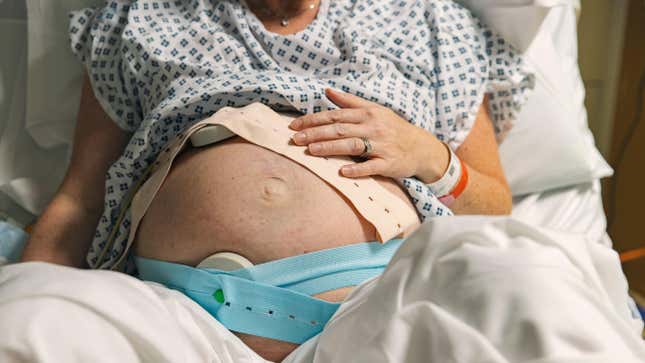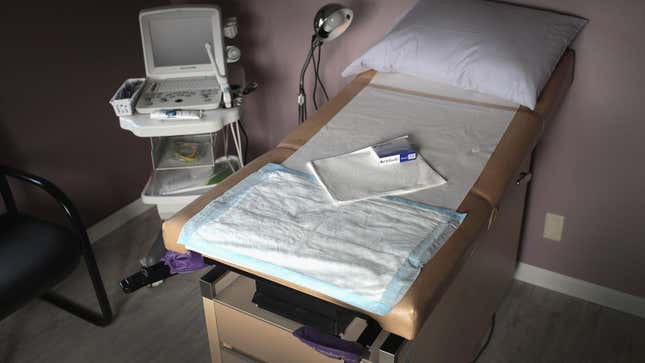Idaho Hospital Shuts Down Labor & Delivery Department Over Threat of Abortion Criminalization
“Highly respected, talented physicians are leaving," the hospital said, citing the abortion ban. "Recruiting replacements will be extraordinarily difficult."
AbortionPolitics

In December, Idaho resident Carmen Broesder documented her 19-day miscarriage on TikTok, expressing fear that she would die before anyone helped her. Despite the significant pain and blood loss she experienced, Broesder was denied the dilation and curettage (D&C) abortion procedure that would have safely ended her miscarriage and averted further health complications. She said she sought the procedure from OB/GYNs in her state twice but was turned away due to Idaho’s abortion ban and the ambiguity of its language offering an exception to save the life of the pregnant person. “A doctor told me ‘don’t come back until your pain or bleeding is worse,’ like I’m dying,” Broesder told Jezebel. She went to another hospital where she says a doctor “looked at me with pity but said ‘there’s confusion, trepidation regarding the abortion law,’” and he couldn’t act yet.
Broesder eventually received misoprostol (medication used for miscarriage and abortion) and a procedure to remove the remaining tissue stuck to her cervix. But Broesder’s experience—being denied emergency pregnancy-related care by health providers due to the state’s abortion ban—has become increasingly common post-Roe v. Wade. So much so that on Friday, Bonner General Health (BGH) in Idaho announced it’s dissolving the hospital’s entire labor and delivery department and all “obstetrical services.” The department “will no longer be consistent and reliable in May,” a BGH spokesperson told Jezebel in a statement on Tuesday.
In the original press release, the Sandpoint-based hospital detailed a number of reasons it’s discontinuing these health services including staffing shortages, but an especially concerning reason it lists is “Idaho’s legal and political climate”—which contributes to said staffing shortages.
“Highly respected, talented physicians are leaving. Recruiting replacements will be extraordinarily difficult,” the release states. It also cites concerns with the legal threats physicians face as a result of the abortion ban: “The Idaho Legislature continues to pass bills that criminalize physicians for medical care nationally recognized as the standard of care. Consequences for Idaho physicians providing the standard of care may include civil litigation and criminal prosecution, leading to jail time or fines.”
-

-

-

-

-

-

-

-

-

-

-

-

-

-

-

-

-

-

-

-

-

-

-

-

-

-

-

-

-

-

-

-

-

-

-

-

-

-

-

-









































